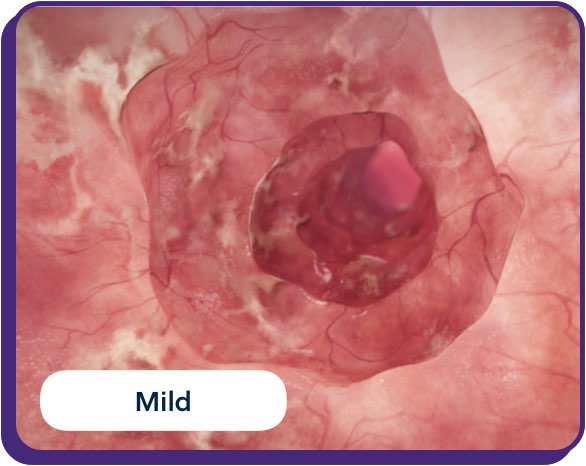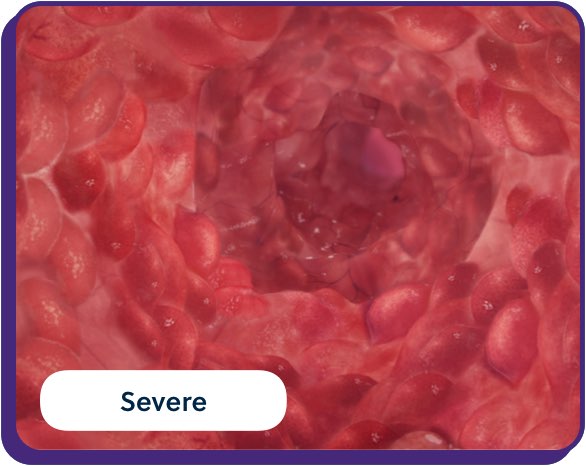Can UC be progressive? Yes.

This means that if it’s left untreated, it can get worse over time. However, the disease can also go through periods where it doesn’t show symptoms (remission) but may be unknowingly progressing.

On this page, you’ll find info about:
The differences in severity
There are varying degrees of ulcerative colitis severity: mild, moderate to severe, and very severe. Each varying degree, along with the symptoms you are currently experiencing, may require a different treatment approach that you will determine with your gastroenterologist. However, if your disease activity changes, make sure to update your doctor and keep an open conversation going.
Question: How severe is your UC?
Ulcerative colitis (UC) has different severity levels that impact each person differently.
To help determine the severity of your disease and make decisions about disease management, your gastroenterologist may use the Ulcerative Colitis Endoscopic Index of Severity (UCEIS) along with other tests.
Mild UC
- Less than 4 stools daily
- Stools may be bloody
- Mild urgency to move bowel
Moderate to severe UC
- More than 6 stools daily
- Stools frequently bloody
- Frequent urgency to move bowel
- Anemia
- Moderate to severe inflammation in the colon
Very severe UC
- More than 10 stools a day
- Stools are continuously bloody
- Continuous urgency to move bowel
- Fever, anemia, and rapid heart rate
- Severe inflammation and ulcers in the colon
The usual suspect? Inflammation
With ulcerative colitis, inflammation can affect the inner lining of the colon. Left untreated, it can progress over time and cause more inflammation, which could lead to colon damage and worsening symptoms. To properly diagnose UC, an endoscopy test will be performed to look at the level of inflammation inside your digestive track.
What progression looks like
Visualizing the level of inflammation is not only possible, but also necessary. This is how the extent and severity of the disease can be determined by your doctor to categorize your ulcerative colitis as proctitis, left-sided colitis, or extensive colitis (pancolitis).
By getting a detailed picture of your colon your doctor will be able to diagnose, treat, and monitor the response from the treatment given to you.




UC’s effects outside the colon
UC can affect your body in many ways. These are usually referred to as extraintestinal manifestations, or EIMs. If you’re experiencing EIMs you should tell your doctor so you can receive the proper care or be referred to a specialist.
The most common EIMs include:
- Joint pain
- Skin problems
- Mouth sores
- Eye problems
- Bone loss
- Liver issues
Keep an eye on your symptoms
Because ulcerative colitis can be a progressive disease, flare-ups and symptoms can get worse over time. That’s why it’s important to keep your gastroenterologist up to date on symptoms you’re experiencing.
Recommended topics for you
Partner with a gastroenterologist
A gastrointestinal (GI) disease specialist can help you manage your inflammatory bowel disease (IBD).
Curious about treatment options?
Partner with your doctor to figure out your UC treatment goals and a treatment plan that may be right for you.
